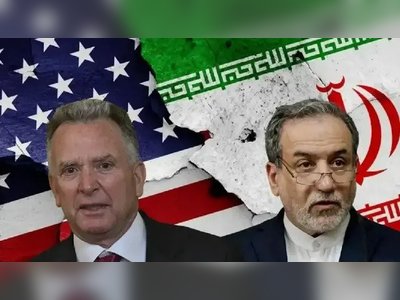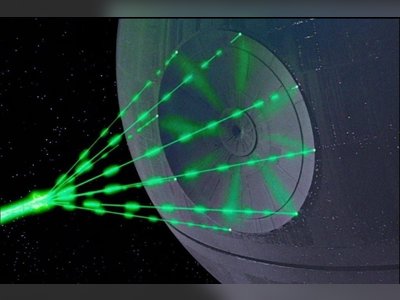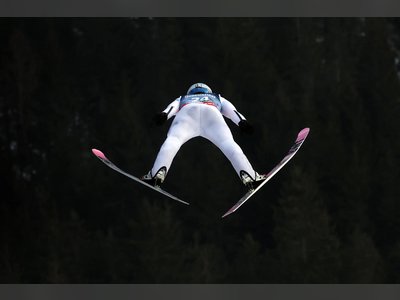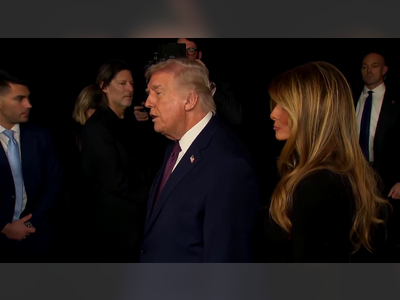Poland Prepares for Potential Shift in US Security Commitment
Amidst changing geopolitical dynamics, Poland reassesses its military strategy and security framework in response to uncertainties in US foreign policy.
Poland is facing a significant uncertainty regarding the future of its security guarantees from the United States, traditionally regarded as a protector against potential aggression from Russia.
This apprehension has heightened, particularly in light of evolving US foreign policy under President Donald Trump, which some commentators suggest has inadvertently bolstered Russian ambitions.
Historical scars from past partitions and conflicts remain fresh in the collective memory of Poles, heightening their existential concerns over the possibility of being left to defend themselves without robust external support.
At present, Poland maintains assurances through NATO, particularly from allies like Germany.
However, the changing geopolitical landscape raises alarms, notably the ongoing pressure on Ukraine to enter peace negotiations, which may entail concessions without sufficient guarantees for its sovereignty.
The security of Eastern Europe thus hangs precariously.
In response to the shifting security environment, Poland has initiated an extensive military modernization program, investing billions in defense capabilities, including the acquisition of South Korean tanks and artillery, as well as US-made fighter jets.
These developments position Poland strategically within NATO's eastern flank.
Despite these advancements, Poland faces a chronic lack of coherent foreign policy strategy.
Historically, Polish political parties of all stripes have viewed the United States as a paternal figure, the ultimate guarantor of independence.
Lingering memories of World War II and lessons from France and England during critical moments have shaped public sentiment and political thought in Poland.
This perception persisted even after Russia's annexation of Crimea in 2014. Although Poland was among the first to express concerns about resurgent Russian dominance, policymakers have undertaken only minor adjustments to their doctrine.
During both terms of the Law and Justice Party (PiS) since 2005, the prevalent notion has been unwavering loyalty to the United States and the display of discipline as its ally.
Under previous liberal governments, a similar mindset prevailed along with attempts to improve ties with Western Europe.
Poland is recognized within NATO for its commitment to defense spending, allocating nearly 5% of its national wealth to military expenditures predominantly on ready US systems.
However, a considerable portion of this budget is earmarked for the purchase of 96 Apache attack helicopters, despite a recent shift in defense strategies among other nations, including Japan and South Korea, towards drone warfare.
Moreover, Poland's military capabilities are hampered by limited satellite capabilities and an underdeveloped domestic space infrastructure, compounded by dependence on foreign partnerships and inadequate cyber security measures.
Issues such as inefficient management, unclear procurement strategies, cronyism, and poor inter-agency coordination continue to plague the defense establishment, with successive defense ministers showcasing contracts for equipment that often lack thorough scrutiny and essential compensation packages for long-term benefits.
The Polish armed forces currently face a crisis.
Misguided hiring decisions, a shortage of seasoned leaders, and chaotic procurement processes have weakened military effectiveness.
Leadership has been compromised due to political purges of experienced military personnel under the PiS government, while the inherent demographic decline affects potential enlistment numbers.
Amidst this backdrop, Prime Minister Donald Tusk announced a revised target to raise the professional army to 500,000, including 200,000 reservists, emphasizing the need for military training among civilian volunteers.
Despite a thriving economy fueled by industrious citizens, the ruling class in Poland exhibits significant shortcomings.
The government has acknowledged its lack of talent in pivotal positions, leading to the appointment of a leading business figure to spearhead reform efforts.
This shift away from independent foreign policy ambitions has resulted in an overestimation of Poland's geographical significance as a regional power.
As the upcoming presidential elections approach, prospects for strategic transformation appear limited.
One prominent candidate from the governing camp seems unable to shift perspectives amidst changing political winds, while another has tied support for Ukraine to historical ‘civilizational issues’ between the two nations, rooted in the mid-20th century.
Incumbent President Andrzej Duda, despite being one of the few international leaders praised by President Trump, has experienced diplomatic isolation, marked by a short meeting with the US president, underscoring the precariousness of Poland's geopolitical position.
The potential for a US-brokered peace agreement with Ukraine that requires territorial concessions without binding security guarantees poses significant strategic risks, potentially emboldening Moscow while destabilizing Central and Eastern Europe, thus challenging Poland's long-held objective of containing Russian influence.
This apprehension has heightened, particularly in light of evolving US foreign policy under President Donald Trump, which some commentators suggest has inadvertently bolstered Russian ambitions.
Historical scars from past partitions and conflicts remain fresh in the collective memory of Poles, heightening their existential concerns over the possibility of being left to defend themselves without robust external support.
At present, Poland maintains assurances through NATO, particularly from allies like Germany.
However, the changing geopolitical landscape raises alarms, notably the ongoing pressure on Ukraine to enter peace negotiations, which may entail concessions without sufficient guarantees for its sovereignty.
The security of Eastern Europe thus hangs precariously.
In response to the shifting security environment, Poland has initiated an extensive military modernization program, investing billions in defense capabilities, including the acquisition of South Korean tanks and artillery, as well as US-made fighter jets.
These developments position Poland strategically within NATO's eastern flank.
Despite these advancements, Poland faces a chronic lack of coherent foreign policy strategy.
Historically, Polish political parties of all stripes have viewed the United States as a paternal figure, the ultimate guarantor of independence.
Lingering memories of World War II and lessons from France and England during critical moments have shaped public sentiment and political thought in Poland.
This perception persisted even after Russia's annexation of Crimea in 2014. Although Poland was among the first to express concerns about resurgent Russian dominance, policymakers have undertaken only minor adjustments to their doctrine.
During both terms of the Law and Justice Party (PiS) since 2005, the prevalent notion has been unwavering loyalty to the United States and the display of discipline as its ally.
Under previous liberal governments, a similar mindset prevailed along with attempts to improve ties with Western Europe.
Poland is recognized within NATO for its commitment to defense spending, allocating nearly 5% of its national wealth to military expenditures predominantly on ready US systems.
However, a considerable portion of this budget is earmarked for the purchase of 96 Apache attack helicopters, despite a recent shift in defense strategies among other nations, including Japan and South Korea, towards drone warfare.
Moreover, Poland's military capabilities are hampered by limited satellite capabilities and an underdeveloped domestic space infrastructure, compounded by dependence on foreign partnerships and inadequate cyber security measures.
Issues such as inefficient management, unclear procurement strategies, cronyism, and poor inter-agency coordination continue to plague the defense establishment, with successive defense ministers showcasing contracts for equipment that often lack thorough scrutiny and essential compensation packages for long-term benefits.
The Polish armed forces currently face a crisis.
Misguided hiring decisions, a shortage of seasoned leaders, and chaotic procurement processes have weakened military effectiveness.
Leadership has been compromised due to political purges of experienced military personnel under the PiS government, while the inherent demographic decline affects potential enlistment numbers.
Amidst this backdrop, Prime Minister Donald Tusk announced a revised target to raise the professional army to 500,000, including 200,000 reservists, emphasizing the need for military training among civilian volunteers.
Despite a thriving economy fueled by industrious citizens, the ruling class in Poland exhibits significant shortcomings.
The government has acknowledged its lack of talent in pivotal positions, leading to the appointment of a leading business figure to spearhead reform efforts.
This shift away from independent foreign policy ambitions has resulted in an overestimation of Poland's geographical significance as a regional power.
As the upcoming presidential elections approach, prospects for strategic transformation appear limited.
One prominent candidate from the governing camp seems unable to shift perspectives amidst changing political winds, while another has tied support for Ukraine to historical ‘civilizational issues’ between the two nations, rooted in the mid-20th century.
Incumbent President Andrzej Duda, despite being one of the few international leaders praised by President Trump, has experienced diplomatic isolation, marked by a short meeting with the US president, underscoring the precariousness of Poland's geopolitical position.
The potential for a US-brokered peace agreement with Ukraine that requires territorial concessions without binding security guarantees poses significant strategic risks, potentially emboldening Moscow while destabilizing Central and Eastern Europe, thus challenging Poland's long-held objective of containing Russian influence.











